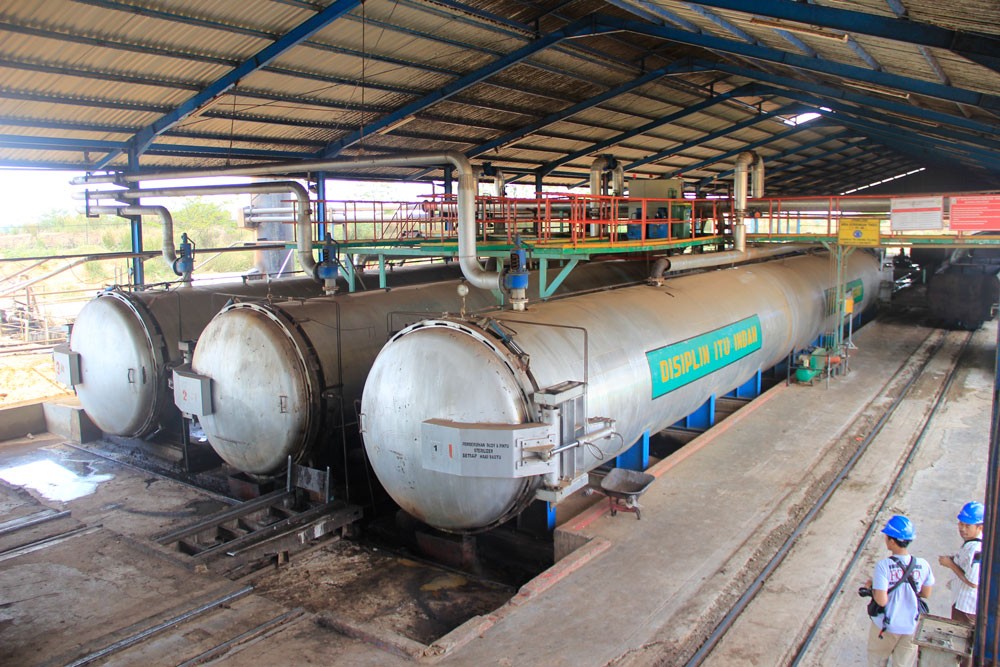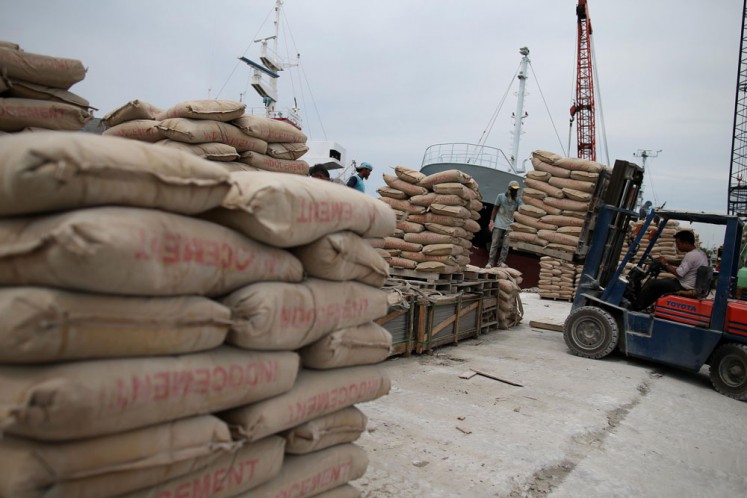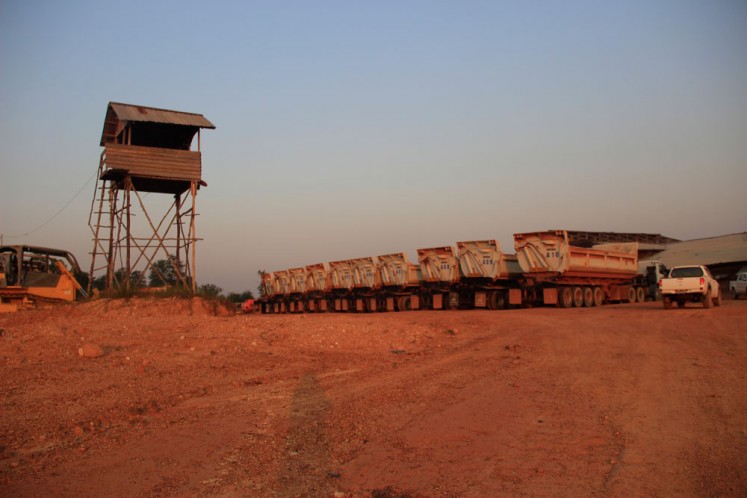Popular Reads
Top Results
Can't find what you're looking for?
View all search resultsPopular Reads
Top Results
Can't find what you're looking for?
View all search resultsState-owned holding companies mobilize sectors, increase economic competitiveness
Change text size
Gift Premium Articles
to Anyone
F
rom 1909 to 1974, Indonesia’s cement market was 100 percent controlled by Semen Padang, Semen Gresik and Semen Tonasa, three cement-producing state-owned companies.
The arrival of the private sector in the national cement market changed the playing field. Starting in 1974, the three state-owned enterprises (SOE) were no longer the only players. In fact, from 1984 to 1989, the three enterprises held only 31.4 percent of the domestic market.
The government has made a move to save the three companies: by merging them into one holding company.
The concept of an SOE holding company is nothing new from a global perspective, and we do not need to look far to see evidence of this.
Singapore has had a SOE holding company, Temasek, since 1974. Overseeing a collection of SOEs, Temasek now owns assets worth around S$275 billion, or Rp 2,750 trillion.
The same goes with Malaysia, which has an SOE holding company called Khazanah Nasional.
What about Indonesia? SOE holding enterprises are also nothing new to the archipelago. The legal basis for establishing one lies with State-Owned Enterprises Law No.19/2003.
Meanwhile, the latest regulation on the matter is Government Regulation (PP) No. 72/2016 on the revision of PP No. 44/2005 on the procedures of state equity participation and administration of SOEs and limited liability companies.
One of the first state-owned holding companies was PT Semen Indonesia (Persero) Tbk. The company became the parent of Semen Gresik, Semen Padang and Semen Tonasa.
According to Semen Indonesia corporate secretary Agung Wiharto, the process of establishing the holding company started in 1995, after which the organization gradually strengthened.
"By merging, we didn’t need to found independent plants. Moreover, we could bring in the best human resources to the holding company," said Agung at an FMB9 gathering, themed “Why is an SOE Holding Company Needed?”, on Dec. 12 in Jakarta.
A few years after its establishment, the cement holding company recorded a positive performance. In 2014, total and regional domestic sales were 28.5 million tons, while in 2016, it increased to 29.1 million tons.
He added that, after the merger, Semen Indonesia was able to expand its marketing to reach all parts of the country.
"The challenges in the cement business were in distribution and logistics. Now, we have all those as one," said Agung.
The improvement is reflected in Semen Indonesia’s performance today. The corporation is a dominant seller of cement in the domestic market, holding the market share of 47.1 percent. With such strong sales, Semen Indonesia managed to book revenue of Rp 26,134 trillion in 2016.
Given the success of Semen Indonesia as a holding company, the government has established other SOE holding companies, including PT Indonesia Asahan Alumunium (Inalum) in the minerals sector.
PT Inalum is the holding enterprise for PT Aneka Tambang (Persero) Tbk, PT Timah (Persero) Tbk and PT Bukit Asam (Persero) Tbk.
Special staffer to the state-owned enterprises minister, Wianda Pusponegoro, said the company brought a positive impact to the country.
For instance, the government can carry out the downstream process of the minerals sector.
"In principle, SOEs are the agent of national development; hence, the management of natural resources must benefit all people," she said.
With the holding company, Wianda added, the government can accelerate the performance of SOEs, with efficiency achieved in terms of strategic decision-making or budgeting.
The merging of similar business entities leads to the joint utilization of operational tools. This can cut expenditures as each SOE need not invest in the tools.
"In the future, we expect to establish SOE holding companies in other sectors—banking, food, housing, oil and gas, and construction and toll roads," Wianda said.
Major contribution
Due to its strategic role, SOEs must be efficient. With 118 SOEs engaged in 13 sectors, they are supposed to promote welfare to all people.
The strength of SOEs are reflected in their total assets, which reached Rp 6,694 trillion in the first quarter of 2017, while the revenue reached Rp 936 trillion.
Tax and dividend contributions from the SOEs to the state budget has also been relatively stable. In 2014, the contribution was Rp 211 trillion. Then, in 2016, the contribution reached Rp 203 trillion.
According to the director general of state assets, Isa Rachmatarwata, SOE holding companies can help to improve the investment climate, resulting in more capital for SOEs without relying on the state budget.
"So we can reallocate the money from the APBN [state budget] to other social needs, like developing the fringe regions," said Isa.
He ensured that the establishment of the holding company did not make SOEs contribute less to the state, including in taxes and dividends.
SOEs’ resilience aligns with the spirit of Nawacita championed by the administration of President Joko “Jokowi” Widodo and Vice President Jusuf Kalla. The aim is to create economic independence by mobilizing strategic domestic sectors and boosting people’s productivity and the country’s level of competitiveness.
Based on the 2017-18 Global Competitiveness Index report issued by the World Economic Forum, Indonesia’s level of competitiveness has continued to improve. Today, Indonesia ranks 36 out of 137 countries, rising five spots from the previous year’s 41st position.
As SOEs play a vital role in the country’s development, we should continue to be hopeful and strive for providing welfare to all people in Indonesia.












